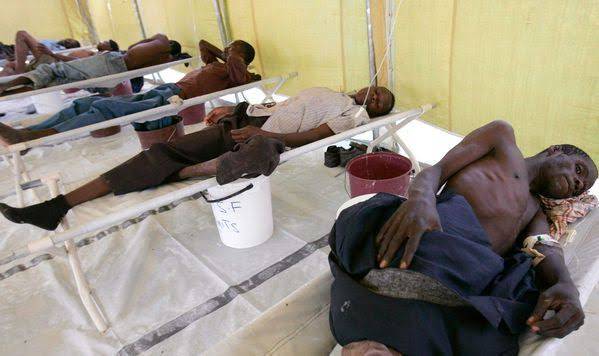An unprecedented fear of a possible cholera outbreak has rippled across Nigeria, with Lagos State recording no fewer than 15 mortalities. Health authorities have linked the current outbreak to the cholera subtype known as Serovars O1. On June 18, Lagos State Health Commissioner Akin Abayomi described the outbreak as “highly aggressive and contagious, with the potential for widespread impact.”
Commissioner Abayomi, through his verified X account, provided a detailed breakdown of the outbreak across local governments. Lagos Island reported the highest number of suspected cases at 106, followed by Kosofe with 49, Eti-Osa with 38, and Lagos Mainland with 30, out of a total of 350 suspected cases in the state. The affected individuals are currently receiving free treatment at the state’s public health facilities, showcasing the government’s immediate response to the crisis.
Nationwide Spread and Government Response
The Nigeria Centre for Disease Control and Prevention (NCDC) reported that cholera had claimed 30 lives across 30 states this year alone. Between January and June, Nigeria recorded 1,141 suspected cholera cases. States such as Bayelsa, Lagos, Abia, Cross River, Delta, Imo, Katsina, Nasarawa, and Zamfara accounted for 90% of these cases. Experts note that cholera has claimed thousands of lives in Nigeria since it was first detected decades ago, emphasizing the severity of the current situation.
Cholera is typically contracted through the consumption of contaminated food or water, poor sanitation, and lack of handwashing. Despite various federal government efforts to curb this life-threatening disease, the lack of corresponding efforts from state governments has hindered significant progress. Experts argue that to prevent future recurrences, Nigeria’s three tiers of government must collaborate closely and consistently to implement effective public health measures and improve sanitation infrastructure nationwide.
Emergency Meeting to Address Cholera Outbreak in Lagos
On Tuesday, June 18th, the World Health Organization (WHO), the United Nations Children’s Fund (UNICEF), and the International Organisation for Migration (IOM) convened an urgent meeting in Lagos. This swift response came in light of a recent cholera outbreak that has tragically claimed at least 15 lives and left over 100 individuals receiving treatment in various public health facilities across the state.
Walter Mulombo, the WHO country representative, announced the emergency meeting on his X account, formerly known as Twitter. He stated, “Happening Now: @WHONigeria @UNICEF_Nigeria @IOM_Nigeria hold an emergency meeting on the emerging cholera outbreak in Lagos state.” He further added that the three agencies are coordinating their efforts to support local authorities, including the Nigeria Centre for Disease Control (NCDC) and Lagos State Commissioner for Health, Prof. Akin Abayomi. The collaboration aims to streamline resources and expertise to mitigate the outbreak effectively.
Defeating the Disease: Essential Measures
Health experts emphasize that preventing cholera requires ensuring access to clean, safe, and potable drinking water, coupled with proper sanitation and waste disposal. They also highlight the importance of maintaining good hygiene practices, such as regular hand-washing. Public health advisories strongly urge Nigerians, particularly those in rural areas where cholera is more prevalent, to avoid consuming raw fruits and vegetables, food from street vendors, and raw or undercooked seafood. Raising public awareness through government-sponsored cholera education campaigns in both English and local languages is also deemed crucial.
In line with these recommendations, the NCDC has issued specific guidelines for the public to follow. These include boiling water and storing it in clean, covered containers before drinking, practicing good personal hygiene by washing hands frequently with soap under clean running water, and using alcohol-based hand sanitizers when soap and water are unavailable. The NCDC also advises ensuring that food is thoroughly cooked before consumption and that raw foods like fruits and vegetables are washed thoroughly with safe water. These measures are vital in curbing the spread of cholera and safeguarding public health
Table of Contents
Discover more from OGM News NG
Subscribe to get the latest posts sent to your email.














